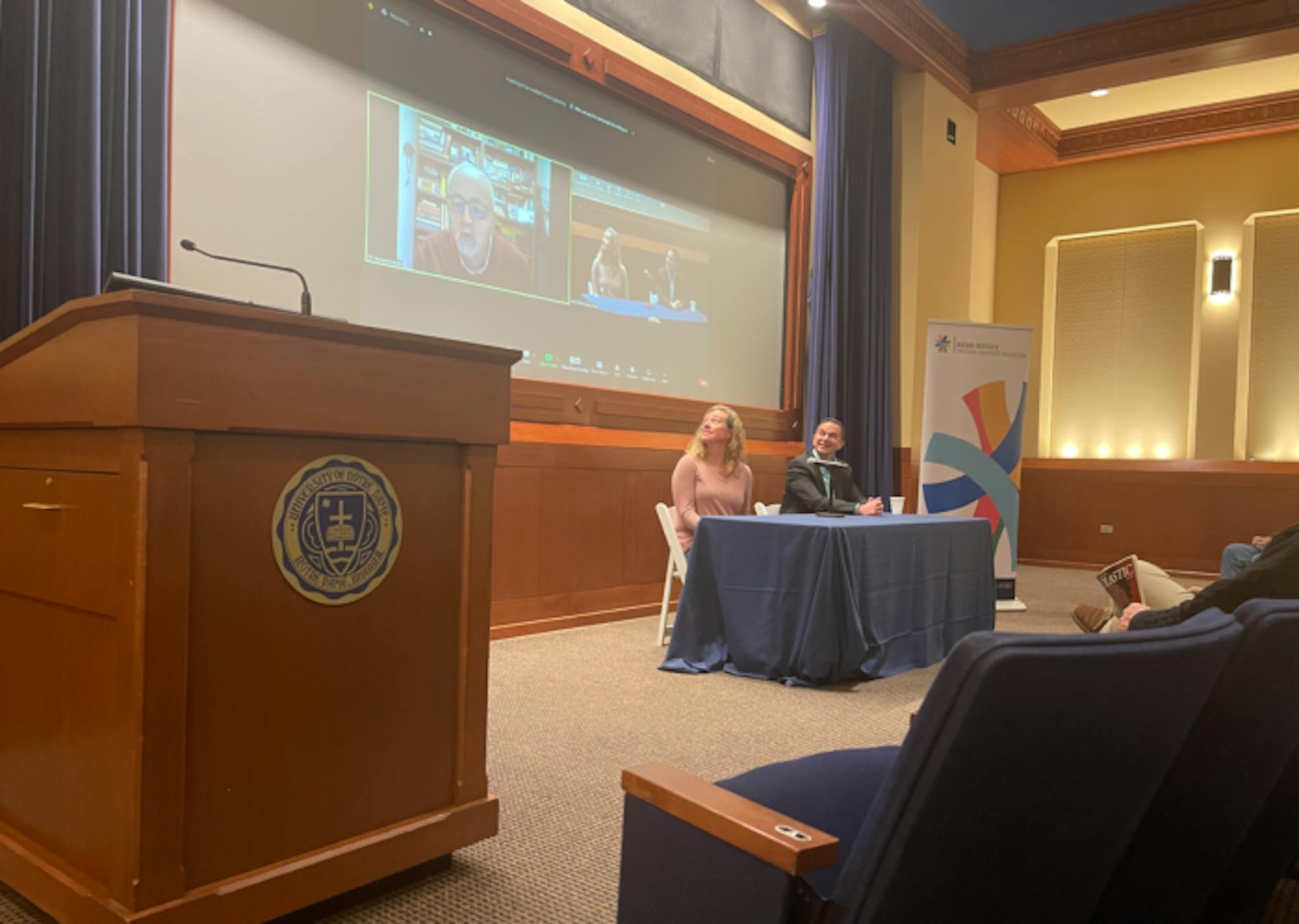Bernard Sabella, a retired sociology professor from Bethlehem University, the only Catholic university in the Holy Land, gave a lecture on the Israel-Palestine conflict Thursday.
He currently serves as the executive secretary of the Department of Service to Palestinian Refugees of the Middle East Council of Churches. In 2006, he was elected to the Palestinian Legislative Council on the quota reserved for Christians from Jerusalem.
Two panelists — Aune Carlson and Jeffrey Abood — spoke alongside Sabella. Carlson is the senior director of operations for Churches for Middle East Peace, a coalition of Christian churches. Abood chairs the Catholic Advisory Council for the same organization and was knighted by the Vatican in 2010.

The lecture was co-sponsored by the Ansari Institute, Churches for Middle East Peace, Bethlehem University Foundation, Liu Institute for Asian Studies, Kroc Institute for International Peace Studies, and the Catholic Peacebuilding Network.
Sabella said Palestinians are disappointed in the international community’s inaction in the face of Israeli violence.
“Palestinians have witnessed the horrendous and horrible killings of hundreds and hundreds of civilians and the wiping out of entire neighborhoods, combined with the disregard for international humanitarian law,” Sabella said.
He said that the Israel-Palestine conflict persists due to a disparity in power and lack of accountability.
“When Israelis and Palestinians are left alone, you have a imbalance of power of Israel — from a Palestinian perspective — doing what they want without any willingness to take responsibility for any of its actions,” Sabella said.
He acknowledged the divisions within Israeli society and politics, but argued the lack of political wisdom from Israel contributed to weakness in dealing with Palestinian Authority.
Sabella noted that Israeli policy that weakened the Palestinian Authority inflamed conflict.
“The Palestinian authority has been weakened again and again by Israeli policy, especially in the occupied settlements of the West Bank,” he said.
Israel’s failure to find or achieve “any peaceful resolution with the Palestinian Authority” further exacerbated tensions, Sabella added.
“The Palestinian Authority was propped up by the U.S., Europe and Israel for security purposes in order to coordinate with each other,” Sabella said. “But it was not given, I would say, any strong incentive to manage the conflict with Israel and to achieve certain political gains through a negotiated peace process.”
Sabella argued that U.S. and European politicians have been largely uninterested in managing the conflict.
“They have been lukewarm in advancing any type of peace brokering. And now all of a sudden, we are in a tragic, terrible moment of conflict when this peaceful resolution should have come years ago,” he said.
Sabella said there will be great difficulty in healing the wounds of the Palestinians in the future.
“We must coordinate a plan for the [restructure] of Gaza — to heal the economic, physical and psychological damage that has occurred in this conflict to move past it,” he said. “We cannot just simply say that we can continue the way we were before. We must avoid a imposition of government upon the Palestinians especially in the West Bank.”









